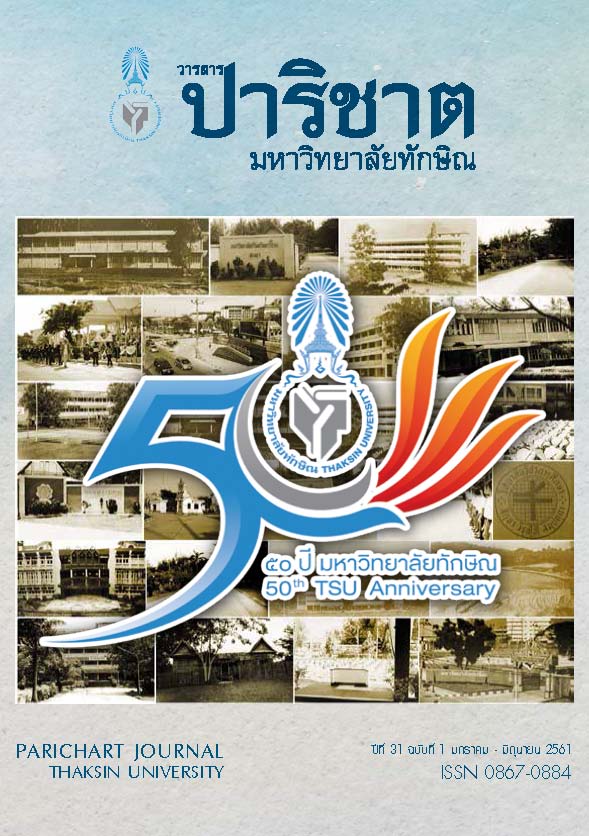Integrating Web 2.0 Technologies to Develop English Writing Competency of Thai University Students
Main Article Content
Abstract
The purpose of this study was two-fold: (1) to investigate the effectiveness of web 2.0 technologies in terms of students’ English writing competency as compared to those with no web 2.0 technologies-applied classes, and (2) to examine the extent to which web 2.0-based classes differ from non-web 2.0 classes regarding students’ attitudes towards writing class, writing skill improvement and cooperative learning. A sample group of 60 university students at Thaksin University participated in this study. Simple random sampling was used to select the sample group. The t-test was used to analyze the data. The results revealed that the learning achievement on English writing among participants using web 2.0 technologies was higher than the learning achievement of those taught through the conventional face-to-face instruction at a significance level of 0.05. The students had good attitudes towards learning English writing with the web 2.0 technologies in three aspects: class, improvement in writing skill and cooperative learning at a significance level of 0.00. Based on the interview result, the students expressed more positive than negative opinions as they thought that web 2.0 technologies offered them effective tools for completing their group work as well as enhancing their writing competency.


